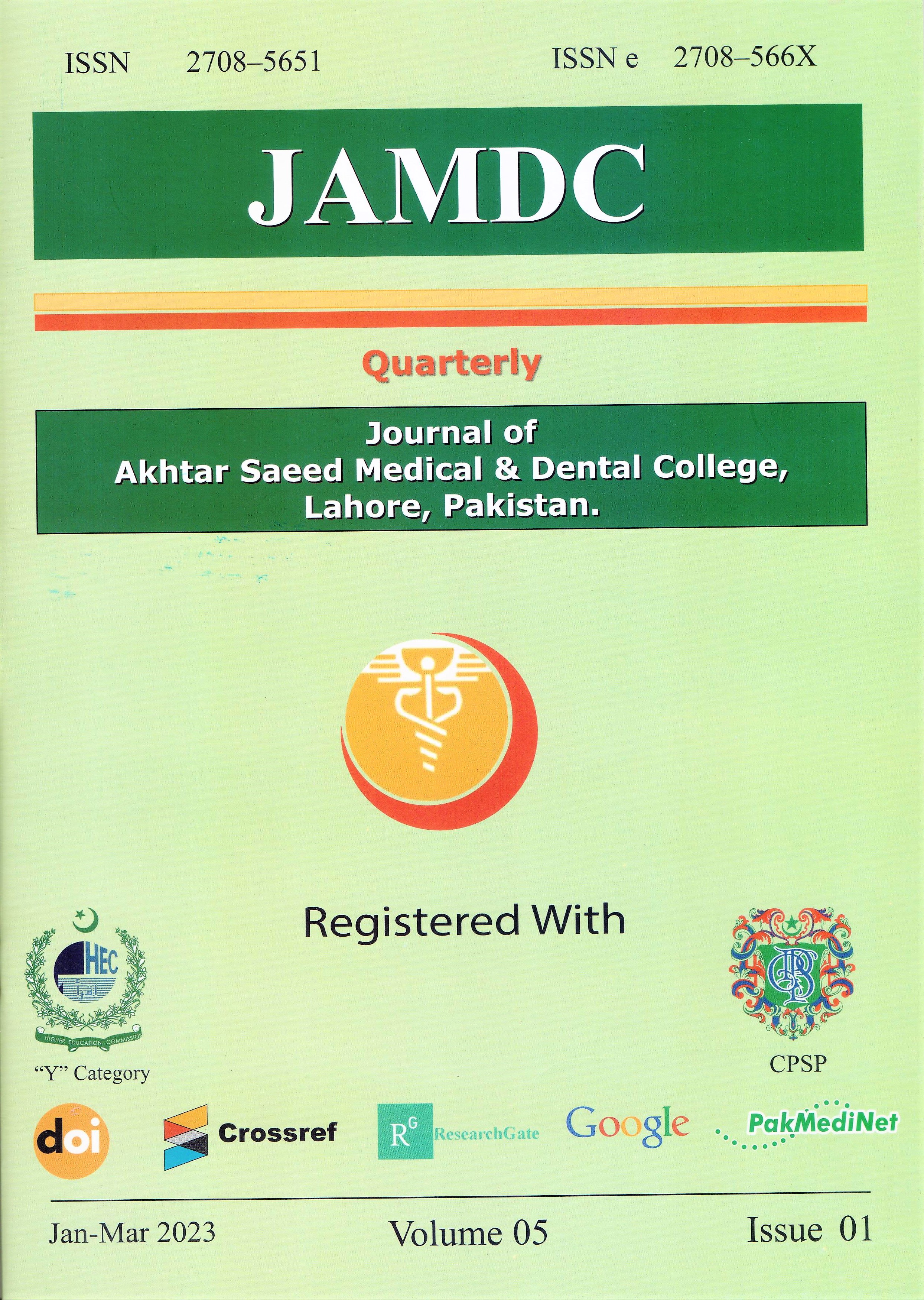BEHAVIORAL CHANGES LINKED WITH ELECTRONIC ASSESSMENT ON UNDERGRADUATE STUDENTS AT THE UNIVERSITY COLLEGE OF MEDICINE AND DENTISTRY
Main Article Content
Abstract
Background:
Global lockdown occurred after the emergence of the COVID-19 health crisis. Courses and exams that used to be taken on campus are now being taken entirely online. The purpose of this research was to investigate how students feel about taking exams online from afar.
Material and Method:
It was a descriptive cross-sectional study. To collect data from undergraduate medical and dental students, a pre-validated survey was distributed to the student body. It included questions about students' demographics as well as their experiences with stress and adjustments in coping strategies in the context of online exams. SPSS version 23 was used to analyze the data.
Results:
Students' intake of high-energy drinks (57%) and soda drinks (60%) increased more in remote eassessment compared to on-campus assessment, and the majority of students report that their caffeine consumption increased in remote e-exam compared to on-campus assessment. During the remote eassessment, students reported a rise in their consumption of fast food and a decrease in their consumption of healthy foods. Half of the students surveyed said that they slept less and did less exercise when taking exams online. Seventy percent of students said they spent less time with their families because of exams taken at home. An increase in the use of analgesics (51%) and anti-stress medications (41%) was also observed during remote e-examination.
Conclusion:
The results of the study showed that students rated taking exams remotely as more stressful than taking the same exams on campus. Students' eating habits, sleep schedules, and exercise routines suffered as a result of the distant e-exams

